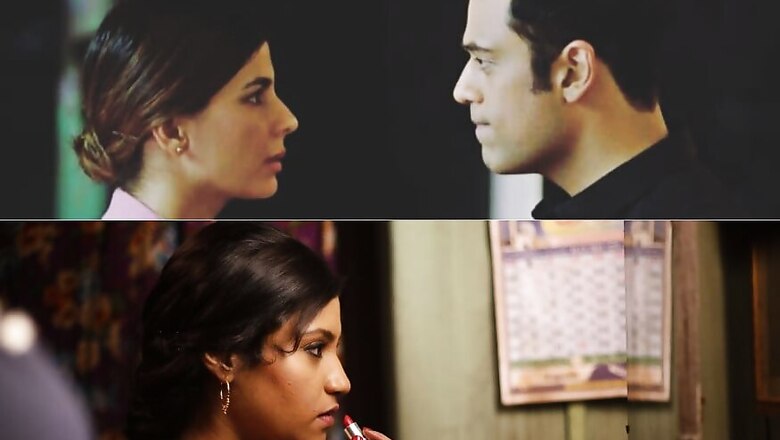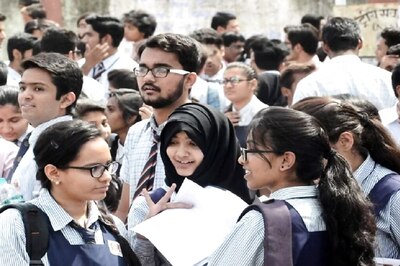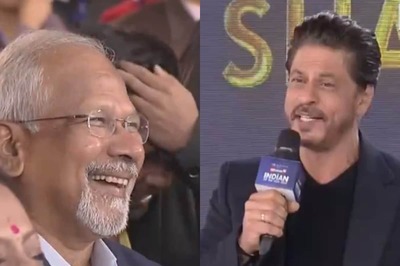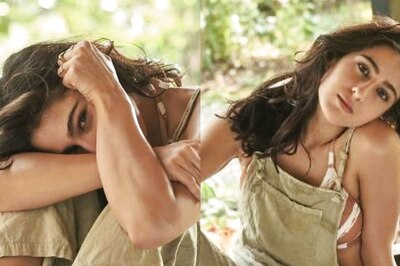
views
The most compelling charm of Rangita Pritish Nandy's latest season of Four More Shots Please is the way it presents a middle-aged single mother open to exploring her sexual desires. Successful lawyer Anjana, sensually embodied by Kirti Kulhari, is curious about traditional conventions of motherhood but never cowed by them, and rather boldly dispels that stubborn age-old belief that mothers shouldn’t expect to be desired.
It is a fresh take on motherhood that is often put on pedestal in our cinematic narrative, barring a few daring films such as Life In A... Metro, Haider and Lipstick Under My Burkha, wherein its women leads don't put their sexuality and sensuality in the background after becoming a mother.
As the world celebrates Mother's Day, we spoke to director Alankrita Shrivastava and actor Kirti Kulhari who presented motherhood on screen beyond its rigid traditional interpretation.
"I think it's about more open conversations and real representations of women who are mothers in stories and films," says Shrivastava, whose critically-acclaimed film Lipstick Under My Burkha celebrates women and their sexuality.
"India lacks a culture where characters that are mothers have agency. Their goal in life seems only to be to care for and protect their families. But the truth is mothers are just human beings with anxieties, fears, hopes, broken hearts, sexual desire, ambition and a need for companionship. And sometimes they don't fit into the "good and perfect" mother box. In fact, in my new film Dolly Kitty Aur Woh Chamakte Sitare, I have explored a different reality of motherhood. In India, normally you never see mothers as regular human beings. They are saints and martyrs."
Shrivastava says that women are believed to be so pure and morally superior to men post motherhood that their lives are best lived in a private sphere creating a sanctuary at home for husband and children.
"I think our society suffers from two dangerous stereotypes. One that motherhood is somehow sacrosanct and so purifying an idea that women should not remain mere women post motherhood. This notion needs to be challenged. Women are human beings who will continue to have sexual, emotional, professional desires dreams and ambitions well past menopause. Motherhood cannot be used to desexualise and sanitise a woman's identity and being or strip her of other facets of her life."
"I don't think it's singularly about motherhood, says Kulhari, before adding, "I think women, in general, are expected to not feel like a woman in its entirety which very much includes the sexual desires that women have."
Notably, Kulhari's character in Four More Shots Please also initially appears to struggle banishing the societal expectations of motherhood even within her own psyche despite being an upper-class, privileged woman.
The actress points out, "This generally happens in the lower strata of society. So, it was interesting to see someone like Anjana, who is very educated and belongs to the upper strata of the society, is also in a way dealing with the same conditioning which is deeply embedded in all of us, so much so that it takes her a while to realise that she actually has all the right to move on from whatever situation she is in and to actually put herself before everyone and everything.
"Women are also treated as vehicles or vessels for just bringing or free producing another life into the world, and that's again a very strong conditioning that we have as a society. And once it's done, women just almost feel ashamed and guilty of wanting anything more, be it sexual gratification, satisfaction or giving into her own sexual desires and fantasies. So, there's a whole negative conditioning attached to this idea."
Kulhari feels fortunate to have played Anjana who mirrored both, the frustrations and the excitement, of a mother's sexual awakening.
"I'm glad that people could relate to a character like Anjana's and see this very important aspect of her in the show where she defies all these ideas and mindsets and actually starts looking out for herself in every single way whether it's sex or love. She drops all the guilt and shame attached to it and decides to stand up for herself and do what needs to be done."
Even though such characters are still few and far between, Shrivastava believes that if there is honesty in stories, people will eventually open up to them.
"I tell stories that interest me. That I am passionate about. I portray complex female characters because I feel women exist in all hues of grey. I cannot predict when audiences and which audiences will be ready to see mothers as women. But I believe my stories will create their own audiences. We have to tell the stories we want to tell. In India people are socialised into ideas of purity about women. This obsession with women being "pure" needs to be broken. We are human beings. Not Goddesses," says Shrivastava.
On the other hand, Kulhari says, "If women in different ways and in different roles are being shown taking charge, it's a good step. I think the day we can just accept a woman for who she is and everything else that is a part of her, it won't matter whether a mother or a 60-year-old woman is depicted being okay with her sexuality."


















Comments
0 comment